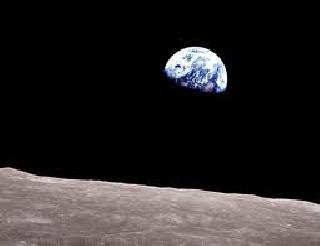
LONDON (PTI): It took about 10 million years for the Earth to recover from the greatest mass extinction which has nearly wiped out life some 250 million years ago, a new study has suggested.
Scientists have long been debating on how life recovered, whether quickly or slowly, from this cataclysm that allowed only 10 per cent of plants and animals to survive.
Now, an international team from the China University of Geosciences in Wuhan and the University of Bristol found new evidence that suggested the recovery fom the crisis lasted some 10 million years.
According to the team, which detailed its finding in the journal Nature Geoscience, there were apparently two reasons for the delay, the intensity of the crisis and continuing grim conditions on Earth after the first wave of extinction.
The end-Permian crisis, by far the most dramatic biological crisis to affect life on Earth, was triggered by a number of physical environmental shocks -- global warming, acid rain, ocean acidification and ocean anoxia. These were enough to kill off 90 per cent of living things on land and in the sea, the researchers said.
"It is hard to imagine how so much of life could have been killed, but there is no doubt from some of the fantastic rock sections in China and elsewhere round the world that this was the biggest crisis ever faced by life," said Zhong-Qiang Chen from the China University of Geosciences.
Current research shows that the grim conditions continued in bursts for some five to six million years after the initial crisis, with repeated carbon and oxygen crises, warming and other ill effects.
Some groups of animals on the sea and land did recover quickly and began to rebuild their ecosystems, but they suffered further setbacks, the researchers said. Life had not really recovered in these early phases because permanent ecosystems were not established, they added.
Study co-author Michael Benton, a Professor of Vertebrate Palaeontology at the University of Bristol, said: "Life seemed to be getting back to normal when another crisis hit and set it back again. The carbon crises were repeated many times, and then finally conditions became normal again after five million years or so."
Finally, after the environmental crises ceased to be so severe, more complex ecosystems emerged. In the sea, new groups, such as ancestral crabs and lobsters, as well as the first marine reptiles, came on the scene, and they formed the basis of future modern-style ecosystems.
Professor Benton added: "We often see mass extinctions as entirely negative but in this most devastating case, life did recover, after many millions of years, and new groups emerged.
The event had re-set evolution. However, the causes of the killing - global warming, acid rain, ocean acidification -sound eerily familiar to us today. Perhaps we can learn something from these ancient events."
 Previous Article
Previous Article Next Article
Next Article












The Indian Air Force, in its flight trials evaluation report submitted before the Defence Ministry l..
view articleAn insight into the Medium Multi-Role Combat Aircraft competition...
view articleSky enthusiasts can now spot the International Space Station (ISS) commanded by Indian-American astr..
view article